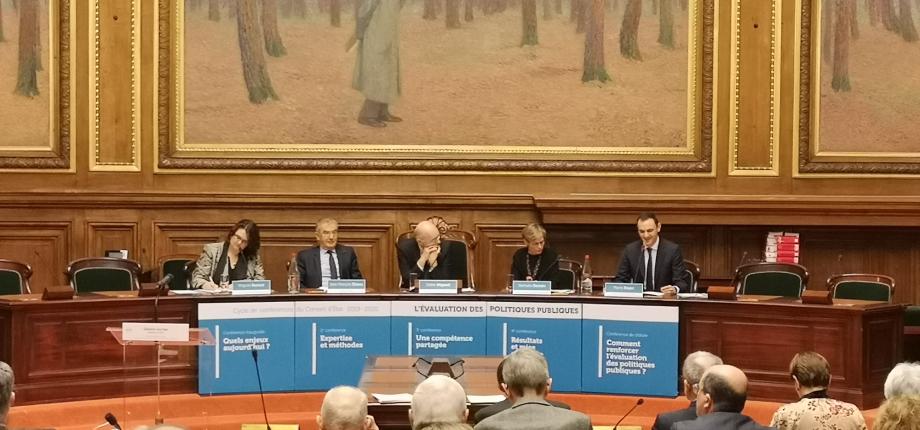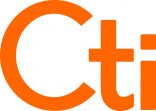Economic Policies and Dynamics



The third year of the ENSAE Paris engineering program includes six specialization tracks. Each track has been designed to offer a coherent sequence of courses (advanced theoretical courses, applications, projects, seminars, etc.), preparing students for a major field of work and giving them a broad and in-depth vision of that field. Each of the professions practiced by ENSAEs will call to varying degrees on statistical methods, data science and modeling, which are therefore present within each track.
Learn more about admissions to the engineering program
The Economic Policies & Dynamics track trains economists specializing in the quantitative analysis and evaluation of economic policies and/or in the analysis and forecasting of economic conditions.
Profiles
Students who choose to specialize in economic policy analysis and evaluation are trained in the study of various economic policies, whether cyclical or structural, sectoral, national or international: monetary, fiscal, labor market, redistribution and social protection, environmental, development, trade, competition, health, housing, energy, and financial regulation policies. They learn to analyze and quantitatively evaluate these policies using structural models and econometric methods, at the micro- or macro-economic level.
Students who choose to specialize in the analysis and forecasting of economic conditions gain a deeper understanding of time series econometrics methods and learn about neo-Keynesian business cycle models, from the theory of these methods and models to their practical application. They also acquire an in-depth knowledge of macroeconomic data through courses in national accounting and business cycle analysis.
The two main axes of the program, economic policies and dynamics, are of course not compartmentalized: all economic policies have dynamic effects, whether temporary or permanent; and, conversely, cyclical policies react to the dynamics of the economy. Therefore, students are naturally led to acquire a base of knowledge common to these two areas during their training, regardless of the area in which they wish to specialize.
Careers
The decisions of economic actors are made in a complex, fluctuating and uncertain macroeconomic environment, marked by recurring crises and major long-term risks. In this context, the economist is indispensable for understanding this environment, forecasting its future developments, and evaluating the consequences of planned public decisions. To meet this demand, the Economic Policies & Dynamics track trains economists capable of analyzing and quantitatively evaluating economic policies, and of analyzing and forecasting economic conditions. The training is essentially based on the mastery of two main types of tools: economic models and econometric methods.
Economic models provide a framework for analyzing economic data and for evaluating ex ante the effects of economic policies, particularly on the well-being of agents. For example, neo-Keynesian models are widely used by central banks and other public institutions to interpret economic conditions and simulate the effect of macroeconomic stabilization policies. The teachings of the track are based on different types of models, depending on the nature of the economic policy studied: microeconomic models, short-term macroeconomic models, long-term macroeconomic models (sustainable development).
Econometric methods are essential for developing economic forecasts and for evaluating the effectiveness of economic policies ex post. They also make it possible to estimate the parameters of economic models. Depending on the context, and in particular on the nature of the economic policy being studied, these methods may be micro-econometric (including randomized controlled trials) or macro-econometric (advanced time series). The track trains students in statistical learning methods and dynamic factor methods, which are particularly well suited to the large economic and financial databases available to public and private actors today.
The Economic Policies & Dynamics track emphasizes both the theory and the practical application of these economic models and econometric methods. The applied and practical component actively prepares students for their first positions, for which they will be immediately operational. The theoretical component provides students with a solid foundation of knowledge and skills that will enable them to develop throughout their careers.
Graduates of this program enter public administrations, through competitive examination or private or public law contracts: the Ministry of the Economy and Finance (INSEE, General Directorate of the Treasury); the statistical services of other ministries (Ministries of Labor, Ecological Transition, Solidarity, and Health); central banks (Bank of France, European Central Bank); regulatory authorities (Prudential Control and Resolution Authority, Competition Authority); and other public establishments (French Development Agency, Applied Macroeconomic Research Centers). In the private sector, job opportunities are found in economic research institutes, consulting and economic research firms, and large banks, which often value a first experience in a public administration.
For students wishing to continue their training with a doctorate in economics, the track is designed to be taken in parallel with the second year (M2) of the Master in Economics or the PhD Track in Economics at the Institut Polytechnique Paris, with which it shares some courses and of which it is complementary. The PhD in Economics allows students to consider a career in teaching and research or in an international organization (International Monetary Fund, World Bank, Organization for Economic Cooperation and Development).
Courses
The compulsory scientific courses and the optional courses recommended for the track are described below. Each semester, you can choose one modern language (maximum). English is compulsory if your level is lower than B2. The options can be mixed between the different tracks (under time constraints) to create hybrid profiles. It is then recommended to discuss their coherence, as well as the articulation of the choice of courses with a possible M2 followed in parallel, with the Master studies director or/and the person in charge of the tracks.
The courses listed below are for informational purposes only, and are provisional. They correspond to the official curriculum for the 2024-25 academic year.
You can find this curriculum in PDF format on the ENSAE intranet: Scolarité => Troisième année => Près-requis et choix des voies => Schéma_UE_3A_2024_2025 (three documents)
First semester
- Second year internship: 7 ECTS credits for the 1st semester of the 3rd year
- Integrated curriculum
| Course | ECTS | Hours (course+tutorials) |
|---|---|---|
| Labor economics or Environmental Economics | 4 | 24+0 |
| Macroeconometrics: Advanced Time-Series Analysis and/or Microeconometric Evaluation of Public Policies | 4 | 24+0 |
| Monetary economics or Public Economics | 3 or 4 | 18+0 or 24+0 |
| Conférences professionnelles Economic Policies and Dynamics | 0 | – |
You can choose from 3 to 6 options (including foreign language) from the entire 3A course catalog, semester 1 (subject to compatibility with your schedule), to reach a total of 30 to 31 ECTS over the semester. We recommend the following courses in this track:
| Course | ECTS | Hours (course+tutorials) | ||
|---|---|---|---|---|
| Applied Statistical Learning | 4 | 15+9 | ||
| Understanding national accounts | 3 | 18+0 | ||
| Environmental Economics: Analysis and Modelling | 4 | 24+0 | ||
| Ethics and responsibility in data science | 2 | 12+0 | ||
| Public Finance | 3 | 18+0 | ||
| Health Economics | 4 | 21+0 | ||
| International trade | 4 | 18+6 | ||
| Labor economics | 4 | 24+0 | ||
| Macroeconometrics and Machine Learning | 3 | 18+0 | ||
| Microeconometric Evaluation of Public Policies | 4 | 24+0 | ||
| Monetary economics | 3 | 18+0 | ||
| Political Economy | 4 | 24+0 | ||
| Theoretical Public Economics | 4 | 24+0 | ||
| Randomized Methods and Policy Evaluation | 4 | 24+0 | ||
| Projects in economics, sociology, and data science - S1 | 3 | 4+8 | ||
| Public Finance (Economics) | 4 | 24+0 |
Second semester
| Course | ECTS | Hours (course+tutorials) |
|---|---|---|
| Applied Macroeconometric modelling: policies, the business cycle, and the green transition or Empirical Environmental Economics | 2 or 4 | 15+0 or 24+0 |
| Economic policy seminar | 3 | 25+0 |
You can choose from 4 to 6 options (including foreign language) from the entire 3A course catalog, semester 1 (subject to compatibility with your schedule), to reach a total of 30 to 31 ECTS over the semester. We recommend the following courses in this track:
| Course | ECTS | Hours (course+tutorials) |
|---|---|---|
| Short-term macroeconomic analysis | 2 | 18+0 |
| Applied Labor Economics | 3 | 18+3 |
| Applied Macroeconometric modelling: policies, the business cycle, and the green transition | 2 | 15+0 |
| Competition policy in practice: cases | 3 | 18+0 |
| Development Economics | 2 | 12+0 |
| Digital Economics | 3 | 18+0 |
| Economics of Energy Markets | 3 | 18+0 |
| Economics of Inequality: Measures and Findings | 4 | 24+0 |
| Economics of redistribution and social protection | 3 | 18+0 |
| Empirical Environmental Economics | 4 | 24+0 |
| Topics in Applied Public Economics: Healthcare | 4 | 24+0 |
| Urban Labor and Housing Markets | 2 | 12+0 |
| Surveys Seminar | 2 | 12+0 |
| Surveys making | 3 | 18+0 |
| International Economics | 4 | 24+0 |
| Projects in economics, sociology, and data science - S2 | 3 | 8+4 |
- The end-of-study internship: 10 ECTS credits for the 2nd semester of the 3rd year










